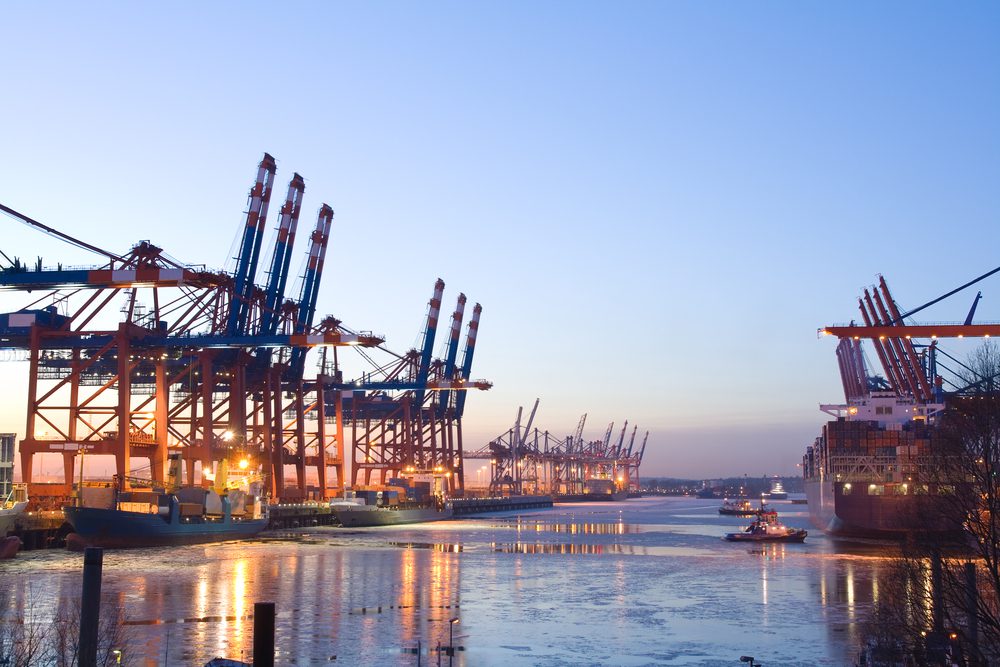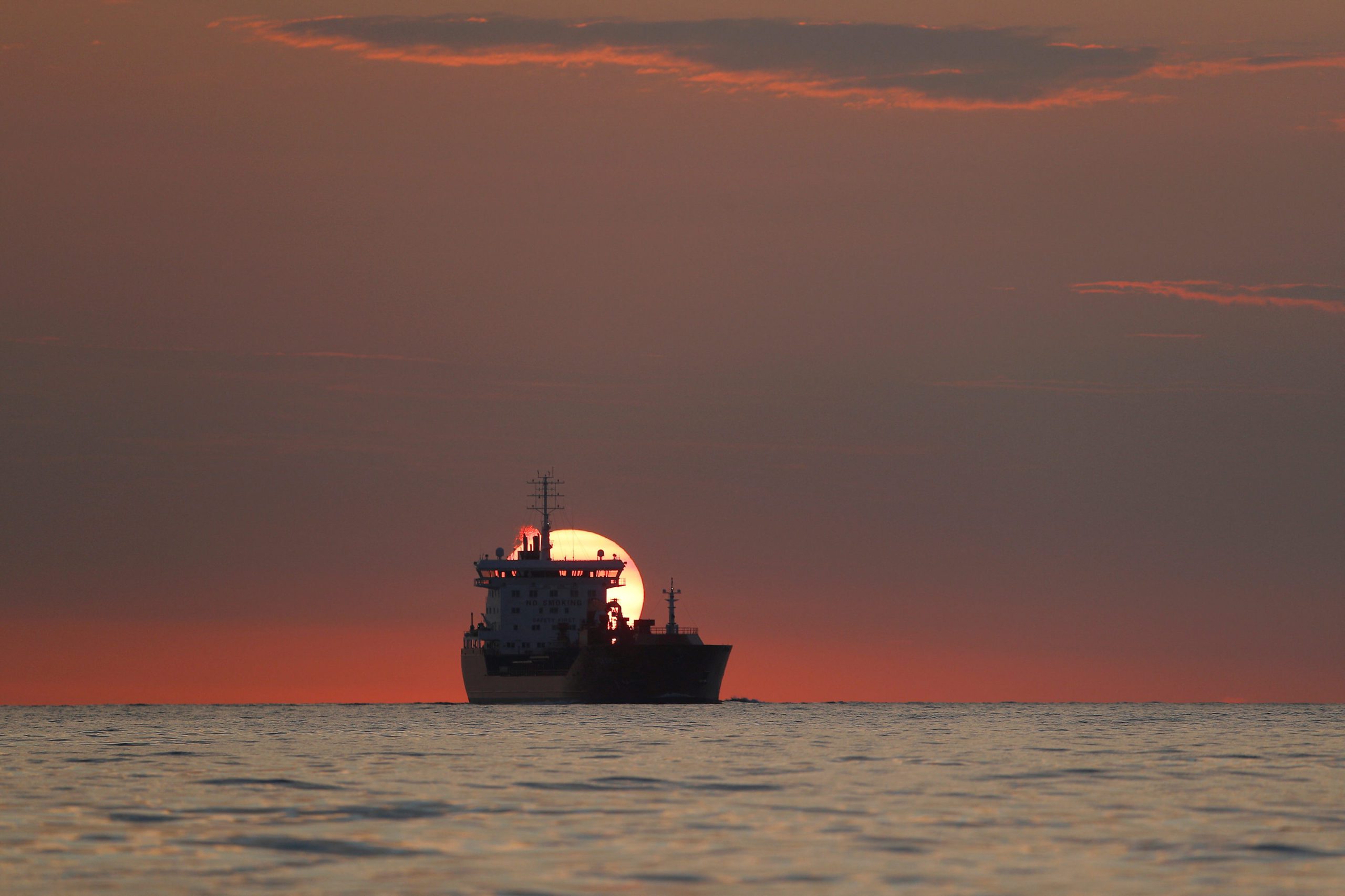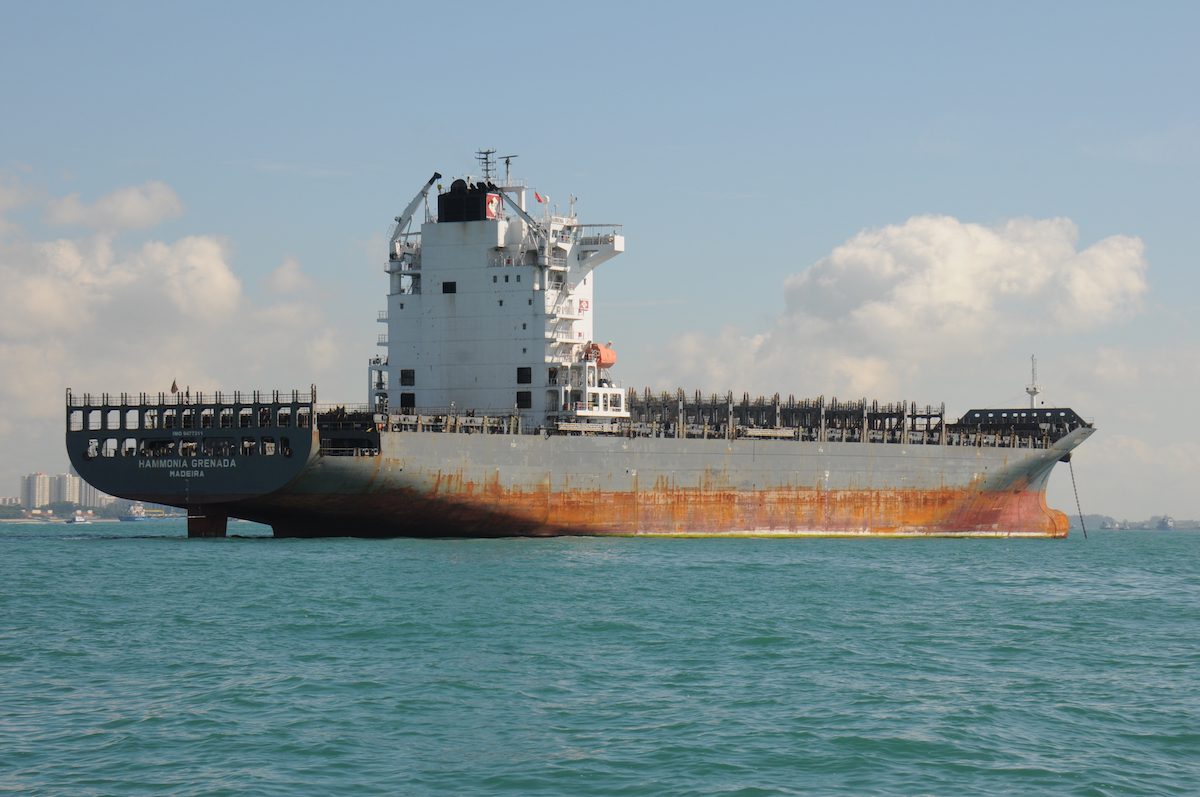By Nicholas Brautlecht and Gaspard Sebag
(Bloomberg) — The European Union agreed to let HSH Nordbank AG shed more than 8 billion euros ($9.1 billion) in faulty loans by shifting most of these to a bad bank in a decision that keeps the Hamburg shipping lender afloat.
About 6.2 billion euros of those assets can be transferred at market prices to a bad bank controlled by the northern German states of Hamburg and Schleswig-Holstein, which own 85 percent of HSH, the states and the European Commission said in separate statements on Monday. Losses resulting from the transfer may be covered by the 10 billion-euro state-guarantee that was also approved in principle by the EU, according to the statements. The measures mean the bank will also be split into a holding company and operating unit, the later of which should be privatized in the future, the states said.
“This is a positive step which creates the chance for the sale of an important part of the bank and can pave the way for a privatized, viable business to emerge from the sales process,” EU Competition Commissioner Margrethe Vestager said in the statement after a meeting with leaders of the states of Hamburg and Schleswig-Holstein in Brussels.
The approval concludes more than two years of negotiations that also involved Germany’s Federal Finance Ministry and the European Central Bank and removes the uncertainty over HSH’s future after its owners fought a fate similar to WestLB AG, the German state-owned bank the EU shut down in 2012. Like its former Dusseldorf, Germany-based rival, HSH buckled under the excessive risk-taking of the pre-financial-crisis period with its strategy to transform itself from a regional lender to companies and savings banks into an investment house.
Once parked in the bad bank, the distressed assets may be sold on to investors with an appetite for risk such as hedge funds and private equity firms.
Hamburg and Schleswig-Holstein sought a restructuring that would keep the lender afloat, arguing that this would be less costly for taxpayers in the longer run than winding down the entire firm.
The state-owners supplied 3 billion euros of capital and a 10 billion-euro guarantee in 2009 to save HSH from collapse, while Germany’s bank rescue fund Soffin provided 17 billion euros in additional liquidity guarantees, steps the EU approved in September 2011.
Anticipating an upturn in the shipping industry, the lender lowered the guarantee to 7 billion euros in 2011, in part to save on fees. The reduction proved too hasty as the industry crisis worsened and HSH, two years later, asked its owners to restore the original guarantee, which the EU approved on a preliminary basis in June 2013.
One of five remaining German state-owned banks known as Landesbanken, HSH used its government backing to go on a lending binge that backfired when subprime contagion spread and recession hit. That legacy has thwarted the bank’s attempts to turn its fortunes around as the maritime industry goes through an extended slump and fees to maintain state guarantees erode its earnings even as it halved total assets to 108 billion euros and cut the number of employees to about 2,500 from more than 5,000.
Other German lenders that also had their state aid examined under EU competition rules include Hypo Real Estate Holding AG, Bayerische Landesbank and WestLB, which in June 2012 changed its name to Portigon Financial Services and became a portfolio manager for a bad bank set up to wind down its assets. Its corporate loan portfolio was transferred to Landesbank Hessen- Thueringen Girozentrale, while all other units were wound down.
©2015 Bloomberg News
Tags:

 Join The Club
Join The Club











